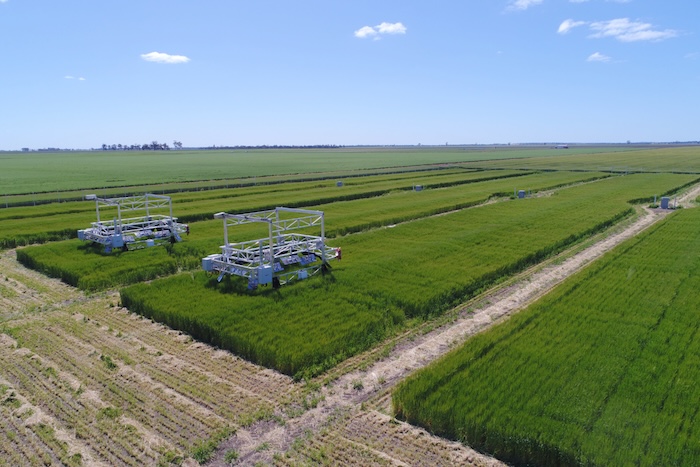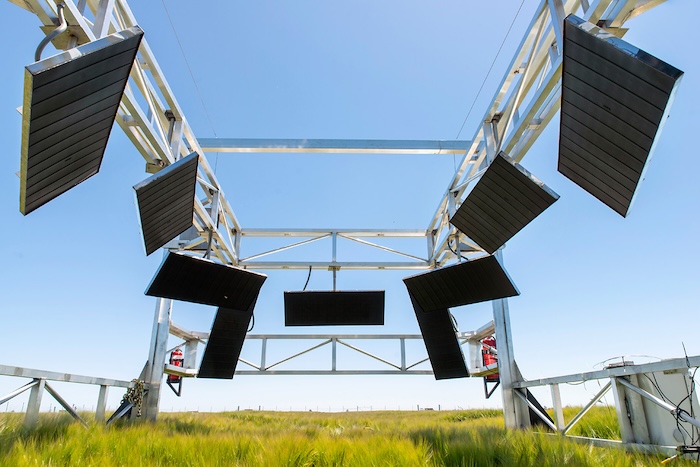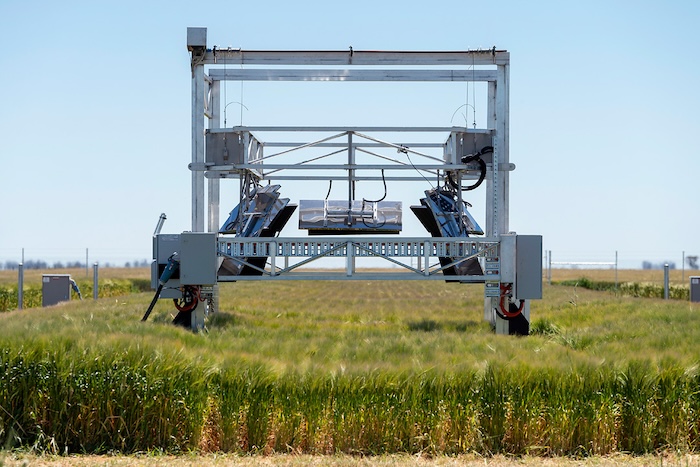Free Air Temperature Extreme Facility
Resilient crops for heat waves
Agriculture Victoria is researching the impact of heat waves on crops to help producers prepare for future growing conditions.
Heat waves are predicted to be more frequent and severe in a changing climate. Researchers are using a one-of-a-kind Free Air Temperature Extreme Facility (FATE) facility at Horsham SmartFarm to test the resilience of cereals, pulses and oilseeds in extreme heatwaves, drought and frost.

Benefits for the grain industry
Opportunities from research at the FATE facility include:
- measuring the impact of heat waves on crop yield and quality
- accelerating the availability of heat tolerant crop varieties
- validating crop management systems that reduce the impacts of heat and frost
- improving crop yield modelling using controlled heat wave, drought, and frost conditions
- providing unique opportunities and training in climate adaptation research for students
- demonstration for growers, industry and the community of new technologies and adaptation to climate change.
What is FATE?
The FATE facility has a series of large, mobile trolleys made from aluminium set up in an open field. Twelve infrared heating panels are attached to each trolley and controlled by a computer system.

Four replicate trolleys of paired heated and reference plots allow our researchers to compare heated versus non-heated impacts to crops. A unique flexible cable allows the trolleys to be powered by the on-site generator and moved to adjacent plots.
It is the only system in the world of its kind, allowing precise application of uniform heat to a range of open-air crops.
Using FATE for research
The FATE facility has been designed to accommodate a range of heat and drought experiments for cereals, oil seeds and pulses.
It is programmed to mimic heat waves and can increase and decrease temperatures across the day replicating what happens naturally in the field.
Heat wave elements that we can control include:
- intensity (maximum temperature)
- duration (number of days)
- timing (plant growth stage).
At FATE we also use remote sensing technologies to measure the impacts of heat waves on crops.

Project Partners
The FATE facility is an investment between the Grains Research Development Corporation and Agriculture Victoria which supports the Victorian Agriculture Sector Strategy.
How to get involved
If you're interested and have questions about adaptation of crops to heat waves and the FATE facility, contact Dr Glenn Fitzgerald at the Horsham SmartFarm Glenn.Fitzgerald@agriculture.vic.gov.au